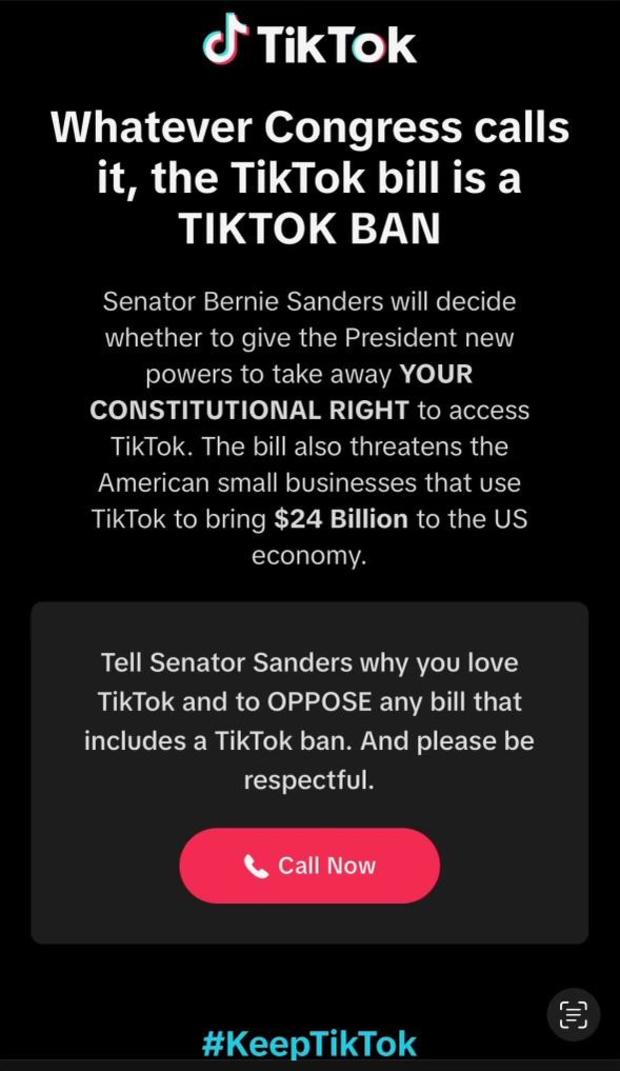The TikTok ban was just passed by the House. Here’s what could happen next.
TikTok users could soon find that the popular social media service is either under new ownership or, although it wouldn’t happen immediately, outright banned in the U.S.
On Saturday, the House passed legislation that would bar TikTok from operating in the U.S. if the popular platform’s China-based owner doesn’t sell its stake within a year. The bill will next head to the Senate, where it is expected to pass, buoyed by its attachment to a larger foreign aid package for Ukraine and Israel that has gained bipartisan support.
TikTok has attracted unwanted scrutiny not only for the addictiveness of its constantly scrolling videos, but also due to its Chinese owner, ByteDance. That has raised concerns among lawmakers and security experts that the Chinese government could tap TikTok’s trove of personal data about millions of U.S. users.
Meanwhile, TikTok has asked its users to contact their lawmakers to argue against the bill’s passage, an effort that appears to have failed to sway opinions in Washington, D.C., noted Eurasia Group director Clayton Allen.
Aimee Picchi
As recently as last week, TikTok was sending push notifications to some of its users urging them to reach out to their lawmakers, saying that the bill could “take away YOUR CONSTITUTIONAL RIGHT to access TikTok.”
“It’s a low-cost exercise if you have access to the user base,” Allen told CBS MoneyWatch. “But it seems like it has backfired.”
Some lawmakers had argued that TikTok’s ability to send bulk push notifications to its users, many of them minors, underscored the risks of the app.
In a statement, TikTok said it is “unfortunate” that lawmakers are “using the cover of important foreign and humanitarian assistance to once again jam through a ban bill that would trample the free speech rights of 170 million Americans, devastate 7 million businesses, and shutter a platform that contributes $24 billion to the U.S. economy, annually.”
Here’s what to know about what could happen next to the TikTok bill.
When will the Senate vote on the TikTok bill?
The Senate is expected to take up the bill as early as Tuesday, although the vote could come on Wednesday, said CBS News congressional correspondent Scott MacFarlane.
President Joe Biden has indicated he would sign the bill, which is primarily focused on providing foreign aid to Ukraine and Israel.
Why does Congress want to ban TikTok?
Actually, lawmakers want ByteDance to sell its stake in TikTok. Barring such a deal, the legislation would, in fact, ban the social media app in the U.S.
Lawmakers are increasingly concerned about the company’s ties in China, with fears that ByteDance or TikTok could share data about U.S. users with China’s authoritarian government.
“The idea that we would give the Communist Party this much of a propaganda tool, as well as the ability to scrape 170 million Americans’ personal data, it is a national security risk,” Senator Mark Warner, a Virginia Democrat, said on CBS’ “Face the Nation,” on Sunday.
What is the timeline for a possible TikTok sale or shutdown?
If passed, the bill would give TikTok’s owner nine months to arrange a sale, with the potential for an additional three-month grace period, according to a copy of the bill released earlier this month.
But, Allen of Eurasia Group noted, that would put the nine-month mark in mid- to late January, which could also coincide with the U.S. presidential inauguration. If former President Donald Trump wins in November, he could very well take a different tack with TikTok, the analyst noted.
“This might become a question for the next administration,” Allen said. “Looking at the language of the bill, I’m not sure Trump would be as bound to pursue what the Biden administration would want. He could use it as a point of leverage with China.”
If TikTok is sold, who might buy it?
Likely bidders include Microsoft, Oracle or private equity groups, according to Wedbush Securities analyst Dan Ives.
However, Ives thinks ByteDance would be unlikely to sell TikTok with its core algorithms, the vital software that provides video recommendations to users based on their interests and viewing habits.
“The value of TikTok would dramatically change without the algorithms and makes the ultimate sale/divestiture of TikTok a very complex endeavor, with many potential strategic/financial bidders waiting anxiously for this process to kick off,” Ives said in a research note.
Could other social media platforms benefit from the bill?
Rivals such as Meta could benefit from the bill if it becomes a law, Ives noted.
Wedbush estimates that roughly 60% of TikTok users would shift to Meta’s Instagram and Facebook if TikTok went dark in the U.S. Google would also benefit, he added.

